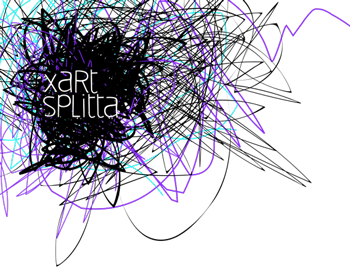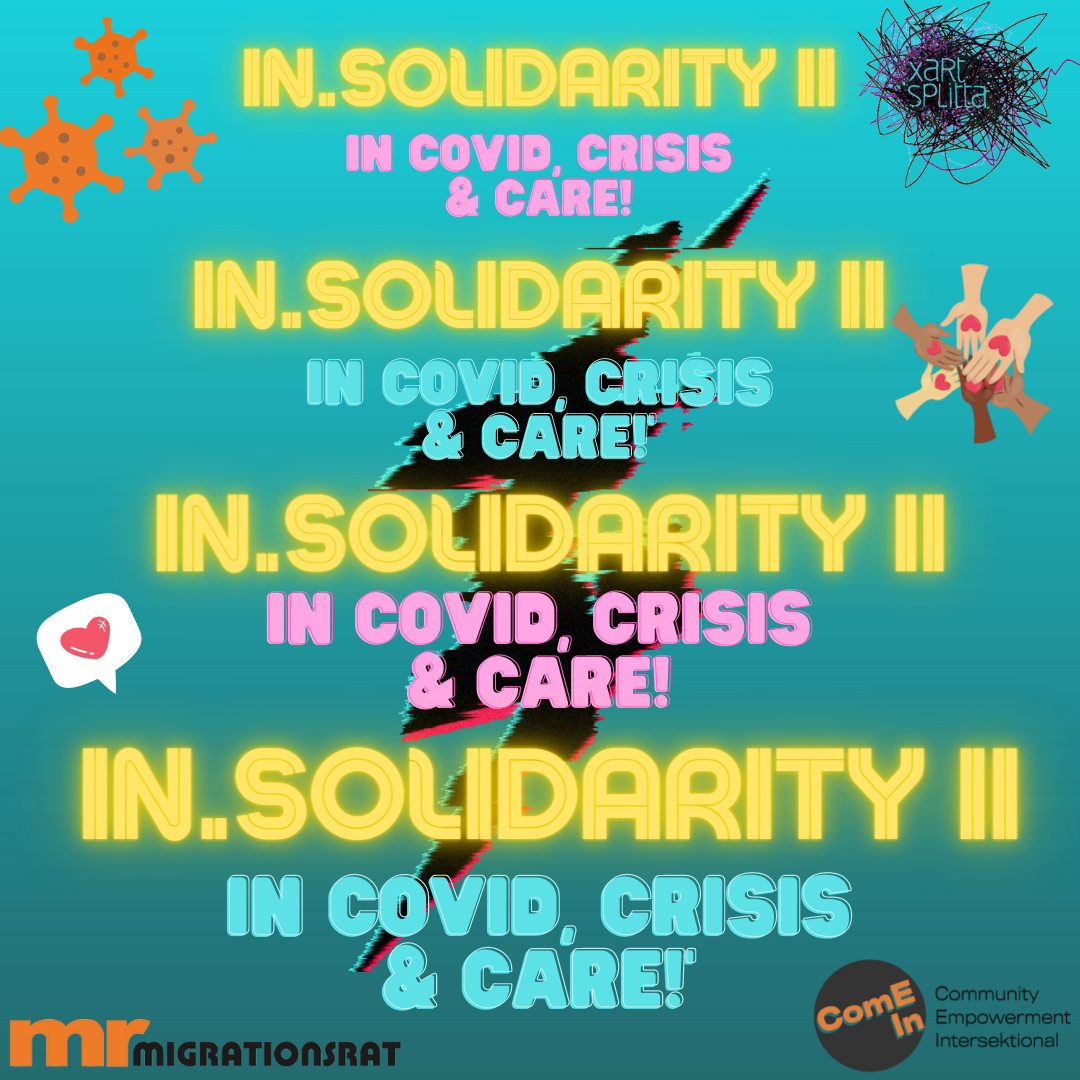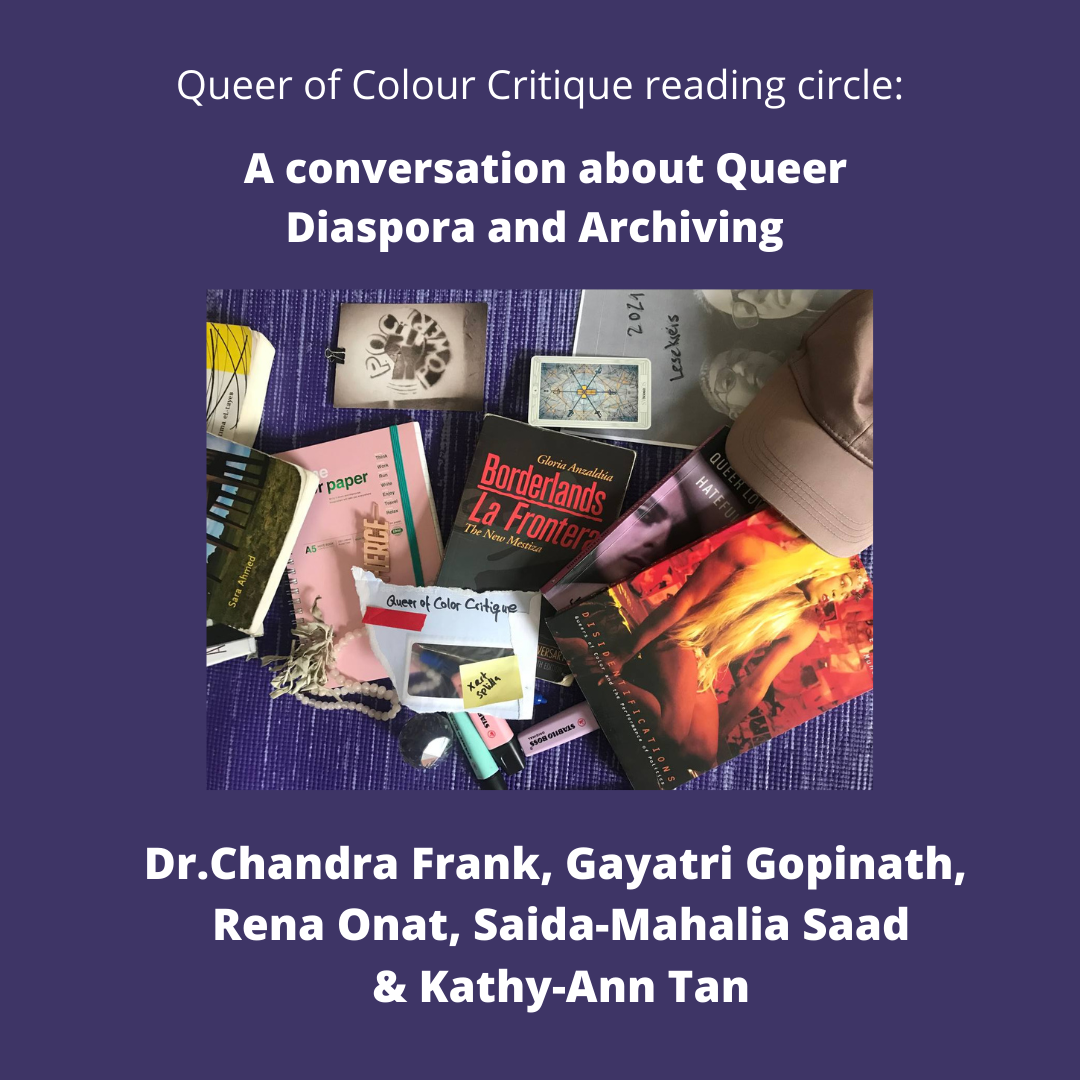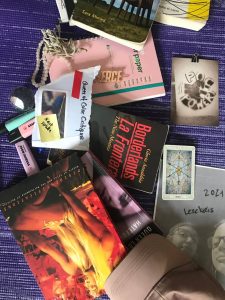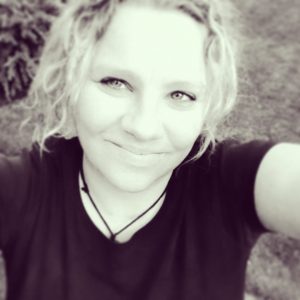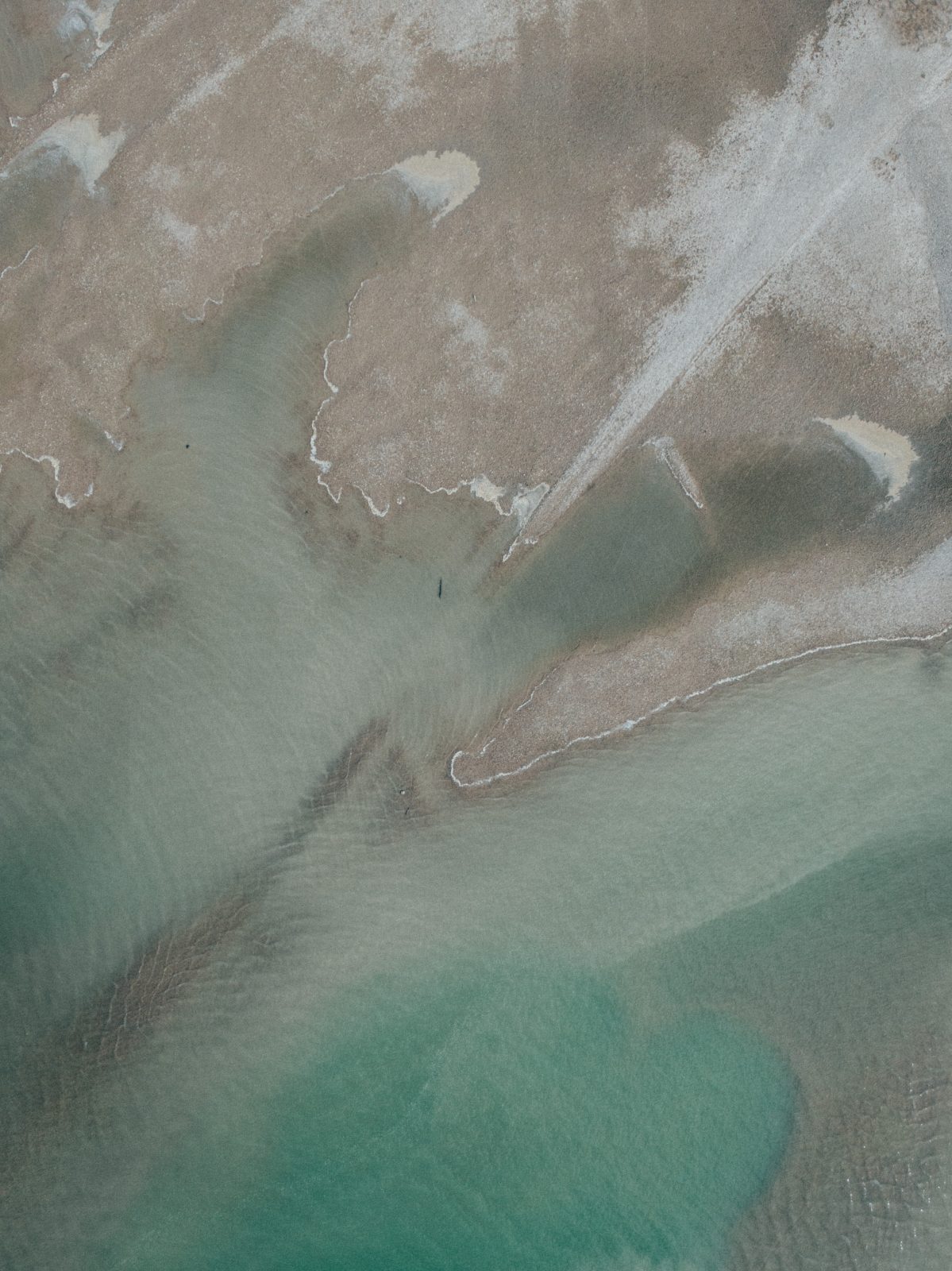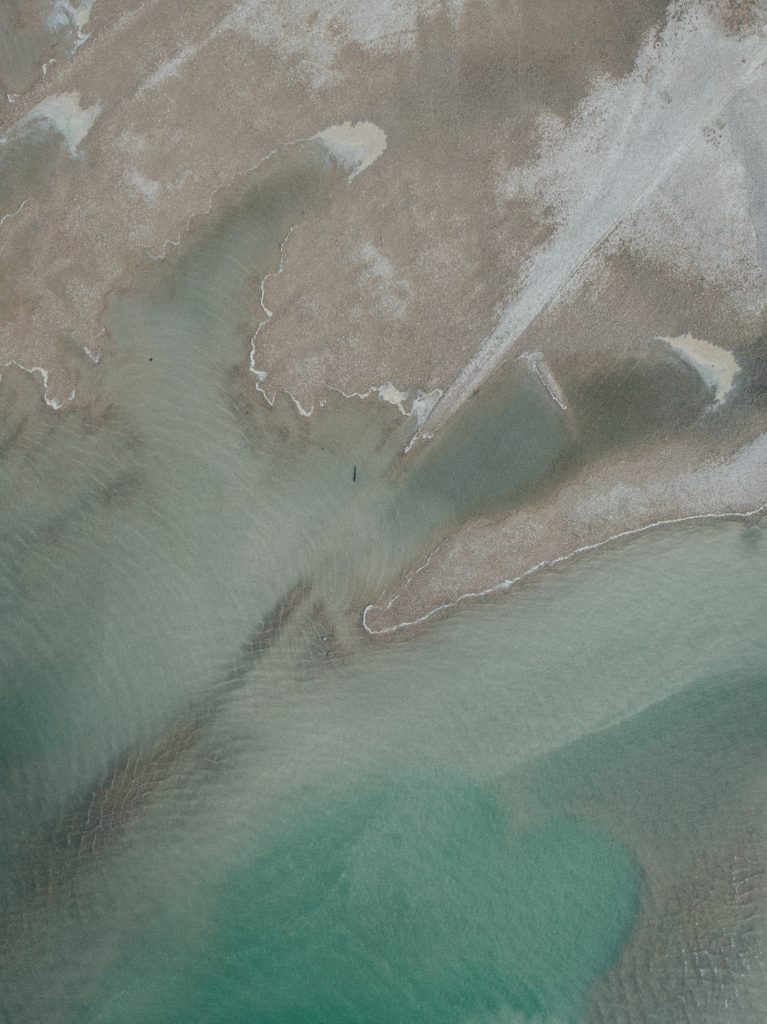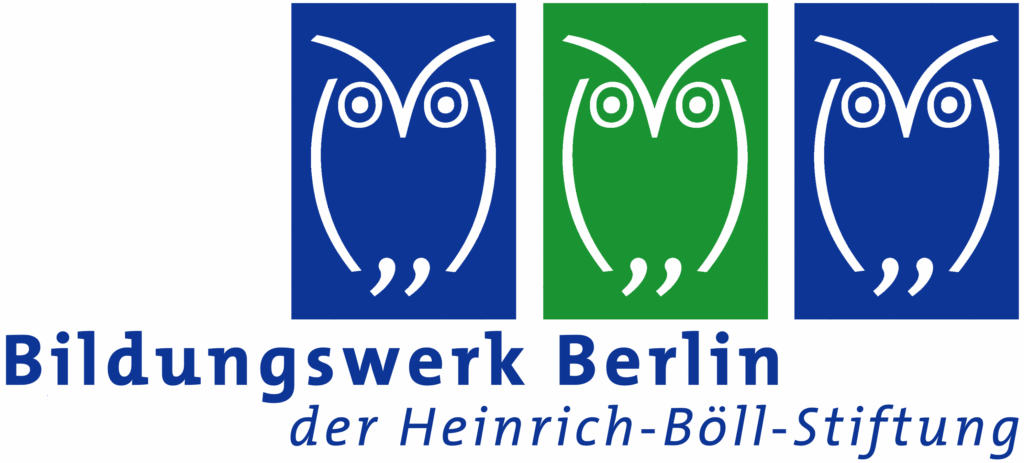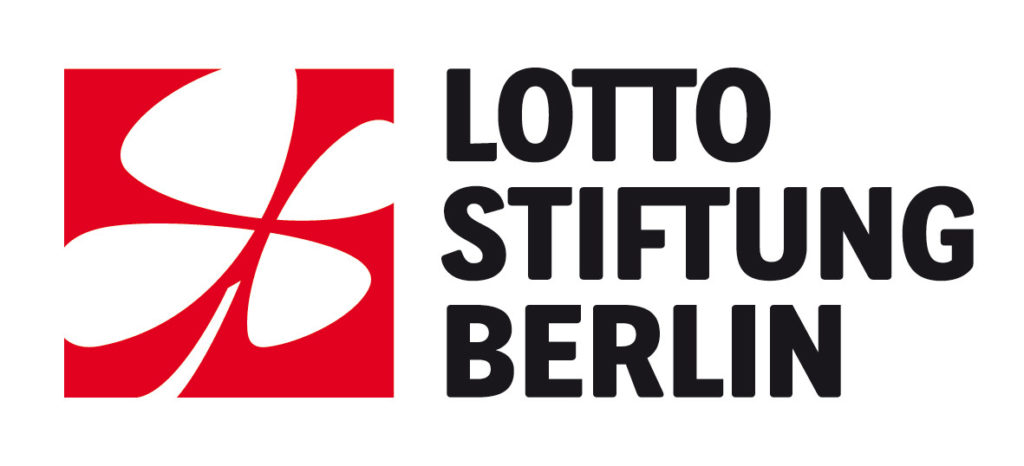Friday, 12th of November 2021, 10 AM-6 PM
Here comes another round of In.Solidarity – Pls. find here what we did last year, together with the ndo.
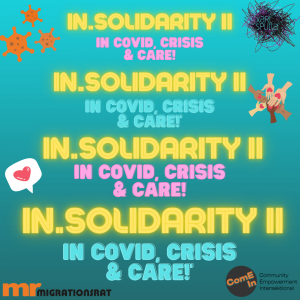
In Covid, Crisis & Care we will discuss the covid-19 pandemic, crises and (self-) care from a cross-community perspective. Crises are not uncommon, especially for people with intersectional experiences of discrimination; stressful or traumatic experiences are rather an everyday life reality. However, a common global pandemic is a new dimension for all of us. Therefore, we would like to talk about: 2 years of Covid – what have we learned and how will it continue?
Which coping strategies have BIPoC communities developed for crises so far? Which ones have changed in the Covid 19 pandemic? Which ones are new? What are similar and different starting points, experiences and consequences? What could be a useful actual allyship? Where do we need more solidarity(s) with each other?
In the four workshops we will discuss possibilities of support, allyship and empowerment from different perspectives and with the support of different inputs. Afterwards, we will end the day together with a closing panel. In this panel, we will bring together the discussions of the workshops and jointly envision and address future perspectives.
Programme
10 am-3pm workshops:
Workshop 1: Empowerment Crisesmanagement & (Self-) Care for BIPoC
Workshop 2: Allyship & Awareness for BIPoC
Workshop 3: Possibilities of allyship for white people
11am-2pm: Healing Circle for BIPoC
4.30pm-6pm: Final panel In.Solidarity with Anifa Heinrich, Can Tunç and Dee. Moderated by Tuğba Tanyılmaz and Juliana Kolberg.
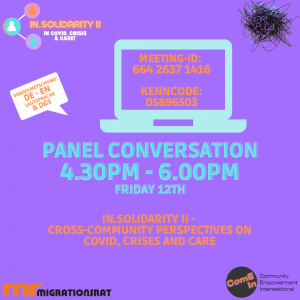
Registration:
Participation in the event is only possible with prior registration. The workshops will take place parallel with but on a different channel than the closing panel. The number of participants for the workshops is limited.
Please register by Friday, 05.11.2021 via contact@xartsplitta.net.
Please note: Some workshops are designed as safe spaces and are only open to BIPoC. The panel is open for everybody.
It would be great if you could write something about the following points in your registration:
- Which workshop do you want to participate in?
- Would you also like to attend the closing panel?
- Why have you decided to participate in the workshop/closing panel?
- How have you dealt with the topic of the workshop and cross-community solidarity(s) so far?
The event will take place online and in presence. In English and in German spoken language with interpretation german – english, as well as german sign language.
The event takes place in cooperation with ComE In, a Migrationsrat Berlin e.V.
project and within the project #CommunitiesSolidarischDenken, funded by LADS.
